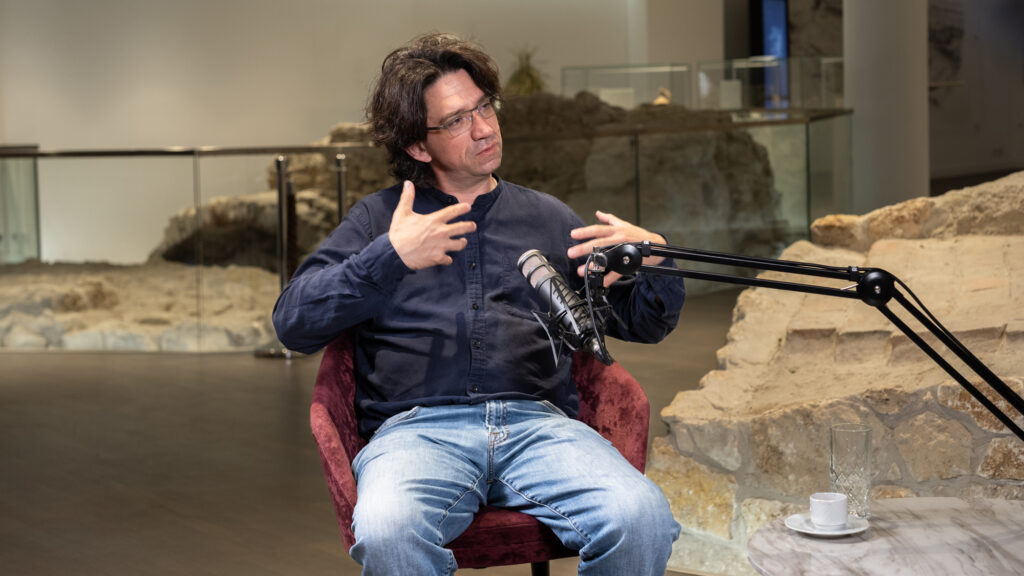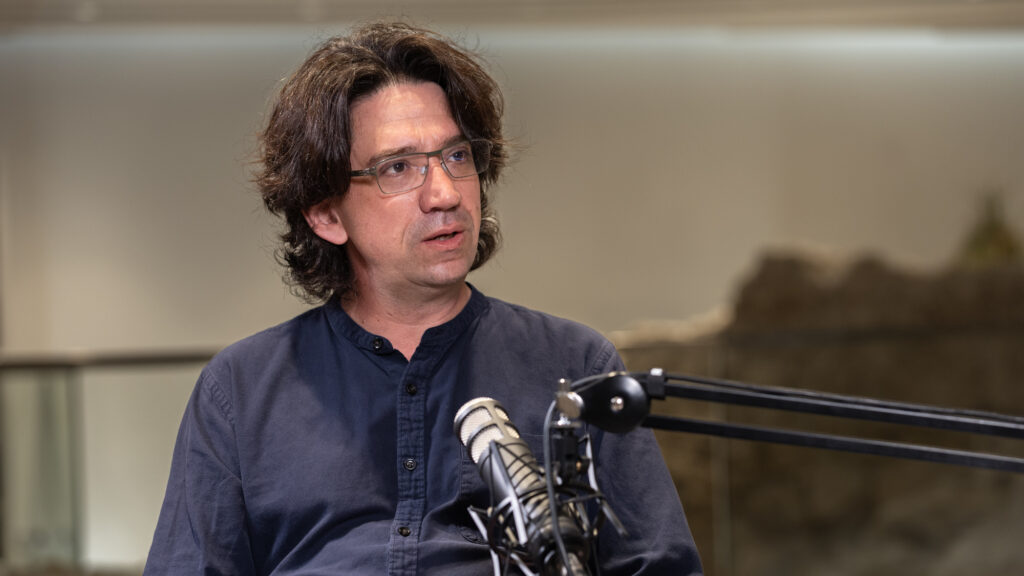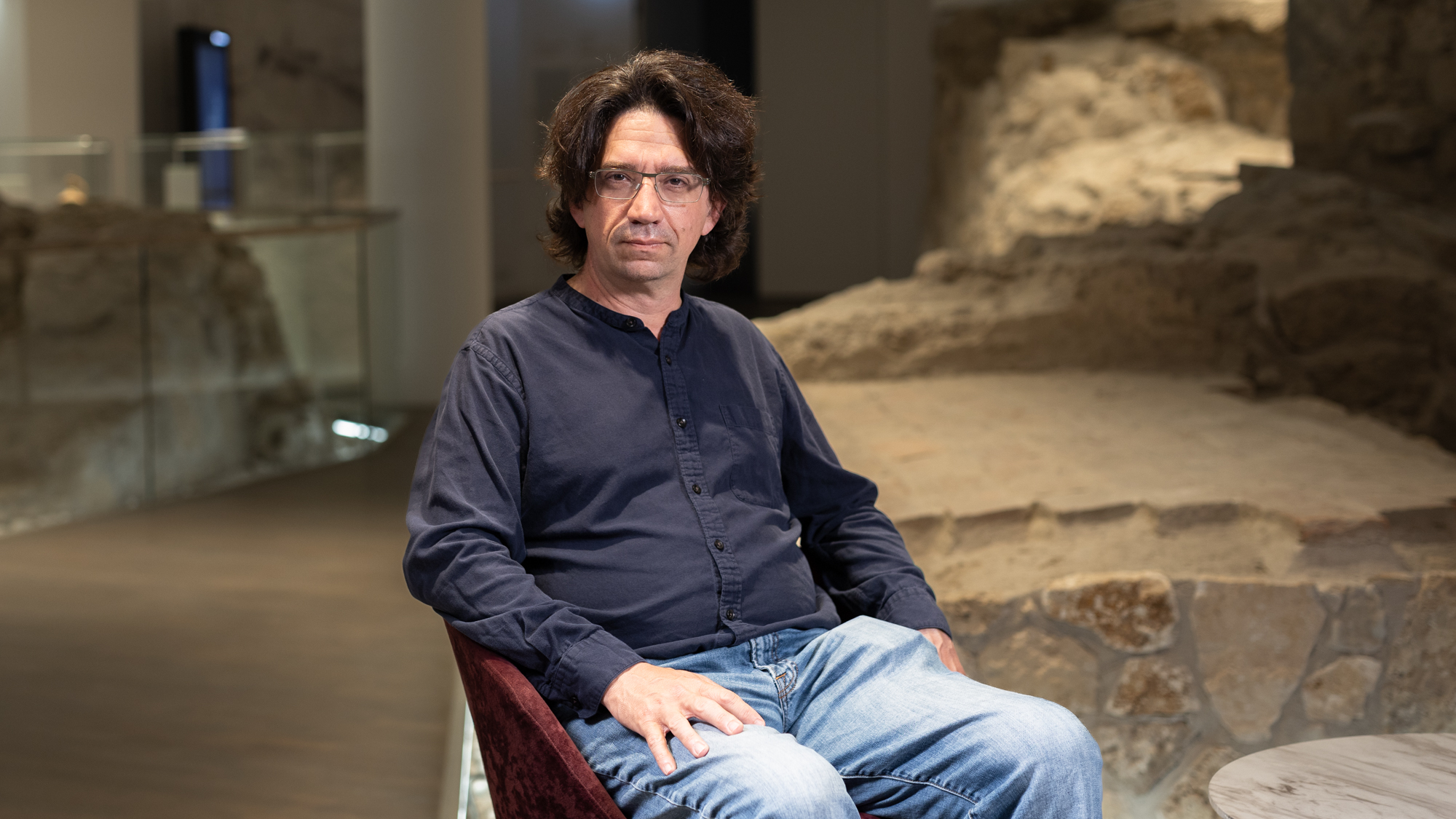Curtis Jarvin is a political philosopher, political blogger and computer scientist. He co-founded the anti-egalitarian philosophical movement known as the Dark Enlightenment in the late 2000s, and by the early 2020s, his ideas had an ideological influence on the American Right, including among prominent figures such as JD Vance, Steve Bannon, and Peter Thiel.
***
What is your impression of Hungary politically and about the environment in Budapest?
It’s a beautiful city. I don’t see evidence of a lot of urban disorder. It’s not a sort of buttoned-up place; it’s obviously not a sort of authoritarian dictatorship state. It’s ultimately a central European country. You walk through Buda Hill, and there’s a little bit of sewage smell coming from under the grates, which you wouldn’t get in Germany, but in Germany, you’d feel a bit more unsafe than here. And actually, I think that the contrast between Budapest and other European cities is growing increasingly stark as the whole migration crisis drags on. And I think that’s a great thing that Hungary has resisted that. And let’s hope that you guys resist a little more in April.
We will see the results of the next election then. Most Americans say the same, security is the thing. Do you feel secure ideologically here?
Yes. You know, the feeling of being surrounded by enemies is always present, especially in America, because America is really the historical home of Leftism. This is something that American conservatives don’t want to believe, but it’s very true. This is a plant that came to Europe from America and England, and you always feel its energy of vampirism. There’s something really vampiric about Leftism. There’s a sort of feeling when you’re dealing with the Leftists and look at their smile, and you’re just like: What is at the bottom of that? Or you see the people who were, for example, cheering the Charlie Kirk assassination—and again you wonder, what is at the bottom of that smile? At the bottom is a blonde beast who wants to drink blood—that’s the thing that is making them that energy of ‘I want to reach out and control your life and how you are.’ I mean, a couple of months ago, I was in Banja Luka, which is obviously not Budapest.
It’s a city in the Western Balkans.
But it’s the same thing that you’re missing there, that energy of the disruptive force of Leftism. You forget it a little bit when you are there. In America, you get so used to seeing this energy, and it’s like a hungry force. You pass people in the street, and they’re just like vampires, wanting to drink your blood.
‘There’s something really vampiric about Leftism’
You use cultural war language, and it’s a kind of stereotyping of the opponents: the leftists and the liberals. But do you see any value in their movement, in social democratic values, or in anything they accomplished in the past?
I honestly don’t think that any historical movement, change, or power structure occurred that I would say is good. How would anyone believe in it? For example, you can’t understand World War II without understanding what each side believed in, what they were fighting for and against. And it’s so common in conflicts that if you really have a position inside the conflict, let’s say you know a couple who’s always fighting, and the problem is that he’s right about her, but she’s also right about him. And there was a lot of that in the 20th-century conflicts. For example, I would say that Hitler’s perception of the Western world is, in some ways, even prescient. One of the reasons he lost the war is that he thought he was fighting against the West of 2025, but he was actually fighting against the West of 1940. Moreover, his main argument was that he’s fighting against this international Jewish conspiracy, which does not exist. And then, you look at the liberal perception of the Third Reich, the things that they saw that are bad about Hitler, they saw that very correctly. But also, Hitler saw some things that are bad about the West that have really come to fruition since then. It’s very hard to know how that regime would have survived over to Bolshevism, right?
You know, my own grandparents were American Stalinist Bolsheviks. They were Jews. They were so committed to their ideology that about ten years ago, my brother found my grandfather’s letters home from war because he was in the US Army and fought his way through Germany. And you read these letters, and he’s talking about obscure points of socialist doctrine with his wife. The thing is, those people had this tremendous sense that they were creating this utopia. In the East, you really knew pre-war communism; here in Hungary, you had Béla Kun in 1919—a really dire, bloodthirsty experience. And to put yourself in the headspace of people as murderous as that is very difficult. But that’s the exercise that you need to make when you’re seeing these people on the street right now who are not going to put on a leather jacket and start shooting, but they have the same kind of vampire energy, so there’s not so much difference between Béla Kun and the hippies.

In what way were you shocked by the murder of Charlie Kirk?
You must know Orwell’s famous essay on political language. And one of the things is that the word hate, of course, has a meaning in the English language, just like the word diversity has a meaning in the English language. And I find that it helps; it cleans up your thinking. Actually, political assassinations have been very effective at various times and places. In general, they’re more effective for the Left than for the Right, because the Left is a kind of amorphous, seething mass of jealousy and odium.
How did you react when you heard the shocking news of the assassination?
Well, I did not know Charlie really at all. However, I had recorded a programme with him. He was a very good interviewer and obviously a very significant figure in the American right-wing revival at the same time. As someone observed to me, the killing of intellectuals, as opposed to politicians, is a kind of what the Latin phrase says—Facilis descensus averno—a step down the staircase that is difficult to come upward for. We had not previously seen American Leftists behaving like Islamists, but that taboo is now a little bit more broken. It’s very worrisome, and it describes this step downward.
‘We had not previously seen American Leftists behaving like Islamists, but that taboo is now a little bit more broken’
Is it a turning point of anything in America?
It’s, of course, hard to know. I think what makes it significant is that it creates a kind of chaos. So, for example, at the start of the US Civil War, the leaders of the South were not the radicals; they were the moderates. Jefferson Davis, the president of the Confederacy, had been one of the main leaders in 1850 against secession. The thing that really triggered the Civil War, in some ways, was this insane man, John Brown, who started this totally quixotic and doomed slave insurrection in Virginia. He was basically the leading American terrorist at this time. And no, we just can’t live with these people. That time, they had a very simple solution, because they had this geographical line, and they were just like, oh, well, we’ll just cut it at the line. But it didn’t work out. And now, of course, there’s no line in America. There are red areas and blue areas, but these are spread around cultural institutions. It becomes hard to imagine that the right says: Oh, we’re gonna forget that this happened. You know, not only was Charlie killed in front of his family, but we can’t forget all the ‘normal’ people out there—the ones this event didn’t turn into vampires. Clearly, they already are; we live in a country with tens of millions of vampires.

American society is very divided. We saw the videos of the debates between Kirk and these leftist college students, which were crazy. How did you get there?
The thing to remember, in a way, is that there’s really no such thing as a non-violent Left. Because the energy of disruption is what defines Leftism. And when you look at the mindset of the vampire, that is that he’s above the law in a way. The Leftist takes personal possession of the Schmittian exception, and he says: Okay, according to all the rules and regulations, this thing is bad, but I’m going to do this bad thing because I’m aiming at a larger good. And in general, there are always sorts of situations under which that moral logic can be correct, just as there is a situation in which you might need to take morphine for an operation, but also morphine is very pleasurable. And this thing that I do that is bad on the surface is going to be good. That’s the happy voice of Satan telling you that the ultimate lesson of Leftism, which is fundamentally atheistic, is that the atheist always makes himself into a god. He’s like: What would God do? God would strike down Charlie Kirk. God doesn’t exist, although. And that mindset is the thing. There was this great line that a Hungarian politician used 15 years ago: ‘We lied in the morning, at noon and at night.’
It’s a quotation from Ferenc Gyurcsány, the former PM, who admitted only after the election that he was lying during the campaign.
Yeah, and you go to America, and the American press managed to disguise the fact that the President had dementia. You know, that was non compos mentis, which is something that is a Soviet vibe, really, the Soviets couldn’t quite do that. And then you remember that 80 years ago, the US had a president who used a wheelchair, and the voters never knew. When we think of the 1960s, we think of an era of peace and love. Here’s this stiff, uptight traditional society, and suddenly girls are wearing flowers in their hair, etc. Well, I guess, the high point of this was basically during the Nixon era, hippies were planting about five bombs a day in the US. They were planting bombs to woo people, but a bomb does kill people sometimes. America had a cultural revolution, and it was not a nonviolent one.
‘There’s really no such thing as a non-violent Left. Because the energy of disruption is what defines Leftism’
So just to give you one example, there’s an American named Angela Davis. She was a student of people like Herbert Marcuse, and she was a black woman. In 1970 I think she was part of a group; there was a sort of alliance between leftist intellectuals and black criminals in the US, which makes perfect sense when you think about it, and Angela Davis bought some guns, gave them to some black criminals to stage a breakout of a trial. They took a judge hostage, killed the judge. She fled, she was arrested, and then she was basically acquitted by a liberal California jury. And Angela Davis is, I believe, a living academic with the most honorary degrees; she’s almost a national hero in a way. And all this tells us which side won in that conflict. Or another example, Barack Obama’s colleague, probably mentor, and ghost writer was named Bill Ayers, who ran an organization called the Weather Underground that was the leading American terrorist organization of its time. And these people have distinguished professorships everywhere. One of the people involved with the Weather Underground is on the board of the organization that runs Black Lives Matter. So this was a violent insurrection. And like any revolution, it’s violent, and then the revolution wins, and the violence stops. But the violence didn’t stop because it was defeated. As you start to question the roots or the principles of the 20th-century revolution in America, you awaken that sleeping demon.
The other side of the coin is that when right-wing influencers debate with leftist opponents, they really try to defeat them, to demonstrate that the right-wing values and arguments are superior to the leftist arguments. Sometimes they humiliate their opponents; these discussions have an air of arrogance. So, is there any responsibility on the right side for this spiral of hatred?
It’s a question that I haven’t been asked before. I think that, obviously, everyone should be free to debate, in a sense, and the truth should always humiliate a lie. At the same time, when I look at the kind of structural inequality of these discourses, it is very clear that the discourse of these leftists is socially superior to Charlie Kirk’s discourse. American communism is really the faith of the American upper class.
‘You have to speak to them as if you were speaking to a king, because they are these vampire kings’
My grandparents, being communists, moved up like three or four ranks in the American status ladder. One of the traditional beliefs about power is that if there’s a divinity, all power comes from God, and so when you’re dealing with these sorts of forces of power that are above you, you have to respect that history has given them that power. And you have to speak to them as if you were speaking to a king, because they are these vampire kings. And I know this because I’m culturally leftist, because I grew up with this. My father was an American diplomat, so I went to an Ivy League university. So I’m careful not to try to level the playing field in a way, or even assume the quality from my perspective and theirs. I have a different take; when I’m talking to a leftist, I want him to ask questions that he has no answer to.

The nature of leftism is fundamentally oligarchical. It is fundamentally a ruling minority, and ruling minorities always have a great fear of majorities. For example, in the time of McCarthyism in the US, the percentage of Americans who could be described as communists was probably about 3 per cent, and when you’re 3 per cent of the population and you’re basically running the government to a certain extent, and people are kind of unhappy about it, you feel very vulnerable.
‘It is fundamentally a ruling minority, and ruling minorities always have a great fear of majorities’
So recognizing that this is of the power structure that is not our country, that it is their country, it basically creates less tension in a dialogue, because you’re not trying to assume something that’s untrue, which is to say: My views are equal to yours. They are not equal. Your views are the views of power, and my views are the views of someone with no power. So there are more effective ways to talk to them than to essentially preach. When you humiliate someone by being right, he doesn’t go home and say: Oh, Charlie was right. He goes home and makes an even worse rationalization for why you’re not actually right after all.
Last question. Is there any chance that President Trump, in the remaining two years of his second mandate, can consolidate the situation, can unite the country?
My first answer is no, but let me qualify that. In a situation like this, where you have this existential conflict, what conservatives are realizing is that there’s actually no moderation here. Actually, it’s really just a question of win or lose. And if you lose, you basically go back to three years ago, but much more intense, and you basically see probably everyone involved in the Trump administration prosecuted, and it starts to become more like when the counter-revolution happens. It’s like what happened in Poland, when the liberals came back into power, they just destroyed everything that the PiS had created almost instantly. And everyone can tell that that will be the fate of the Trump world the next time they lose an election. So they’re waking up to the realization, which is perhaps a little bit similar to the realization here in Hungary, that you just can’t afford to lose any more elections. And that basically puts the Trump administration in a position where it’s just like: No, you actually have to win.
‘You just can’t afford to lose any more elections’
We can’t really forget that this murder happened. We can’t forget that all of these vampires are walking around. You actually have to defeat these people. Republicans in America have been trying to convince themselves that it’s not necessary to win for quite some time. One of their historical mistakes, in a way, the original sin of the post-war Republican Party is the campaign of 1940 in which the Republicans ran Wendell Willkie, who had been a Democrat until six months before the election, and agreed with Roosevelt on the major issue, which was, of course, internationalism or isolationism. In any system that purports to be a democracy, if the president for life runs one of his own guys against himself, that is a classic managed democracy move, and it’s impossible to get back to a balanced, competitive thing later. And now, the American left, at least, is old and tired. It’s not a young regime anymore. And I think people are realizing it’s win or lose, and we don’t even really know what winning looks like, but we definitely know what losing looks like.
Watch the full podcast below:
What did America learn from the Charlie Kirk murder? | Danube Lectures
Listen on Spotify: https://open.spotify.com/episode/2EDjFvT6GGhE6xM2SIYtue?si=CNYC8senRgm1yE4SBLl5Sg 0:00 – Introduction 0:39 – What is Yarvin’s impression of Hungary politically? 2:13 – About the nature of Leftism 4:35 – About the ideological roots of Leftism 10:23 – In what way has Charlie Kirk’s death shocked Mr. Yarvin? 12:50 – Is Charlie Kirk’s assassination a turning point for anything in America?
Related articles:







